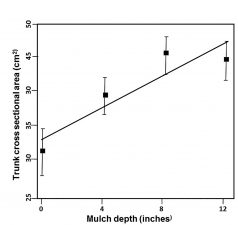
Mulching – overlooked and underutilized
It shouldn’t be surprising that pecan trees grow better when mulched, as mulching mimics the natural state of trees growing in a forest where the forest floor is covered with a layer of decaying organic matter. Roots developing underneath this layer are growing in a favorable environment, where temperature and moisture are more uniform, soil...
Read more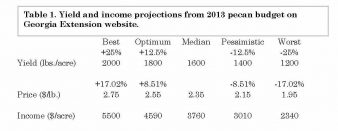
How many pounds per acre should you really expect?
Lake Wobegone is the mythical hometown that radio personality Garrison Keillor describes in his popular public radio show, A Prairie Home Companion. It is a place, he states, “where all the children are better than average”. While Keillor intends satire in that statement, many pecan growers, in all seriousness, plan on all their plantings to...
Read morePecan cultivar recommendations for the Southeast—2014-2015 update
While two consecutive rainy seasons with much higher than normal incidence of scab have made it difficult for growers, the increased scab has provided an opportunity for better evaluation of pecan selections for resistance to this devastating disease. Our expansion of cultivar evaluations beyond multiple locations in Alabama into the center of the major commercial...
Read moreShortest U.S. Pecan Crop Since 1998
The U.S. pecan crop appears to be about 170 million pounds, the shortest crop since 1998, according to Bill Goff, professor and Extension pecan specialist at Auburn University. Pecan industry forecasts made from June through September of 2013 estimated the U.S. crop at an average of 213.6 million pounds. Now that harvest is nearing completion...
Read more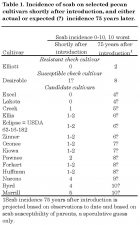
If not ‘Desirable’, what?
Desirable has been the mainstay cultivar in the Southeast for many years, surpassing ‘Stuart’ for the lead in new plantings many years back. And, it has been the mainstay for good reasons. Consistent production is the hallmark of ‘Desirable’. For many years, as a pecan consultant, I have had a task of estimating pecan crops...
Read more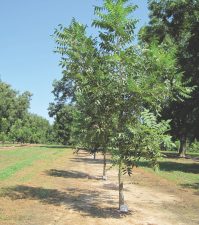
The pecan cultivar trial at Friendship Pecans
A pecan cultivar trial inviting industry-wide cooperation has been established at Friendship Pecans near Albany, Georgia. Our hope is that as many of the most-promising selections from all over the U.S. as possible can be evaluated side-by-side in one location. The experiment, initially, will have 4 trees each of 160 selections in a randomized complete...
Read moreMechanical crop thinning in the West
Pecan crop load management can be done in several ways. Hedging reduces crop in the short-term on the trees that are hedged. Since hedging is done routinely in the West, my discussion will focus more on crop load management by mechanical crop thinning. In this method, pioneered by Mike Smith, Ph.D., and others in Oklahoma...
Read more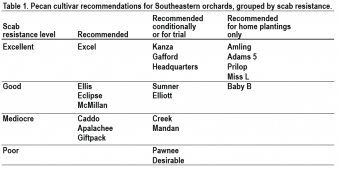
Pecan cultivar recommendations for the Southeast – 2013 update
Major advances in pecan cultivar development and selection have occurred in the past few years, requiring extensive evaluations and frequent updating of recommendations. Because the Alabama pecan industry has smaller growers, often without the equipment or economic incentive to spray intensively with large airblast sprayers, we have focused on pest-resistance to reduce spray requirements. We...
Read morePlanting southeastern orchards for the export market
Like it or not, the new dynamic of export marketing, especially to China, is changing the pecan industry. This is true for growers, accumulators, shellers, processors and consumers, and is unlikely to change barring unforeseen circumstances. So, if you are a grower planting a new orchard, you would be prudent to make yourself aware of...
Read more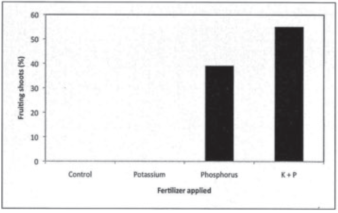
Major changes in how to fertilize pecan trees
Significant advances have been made recently that we believe should result in major changes in how pecan trees are fertilized, at least from Oklahoma east. Consider: • After many years of unsuccessful attempts to increase phosphorus (P) levels in pecan trees from broadcast soil applications, research has shown the ability to significantly increase this important...
Read more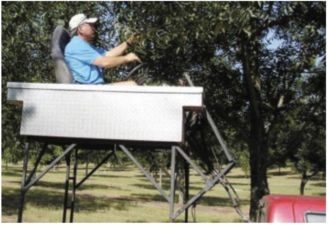
Custom Scouting: valuable resource for pecan growers
As long as I’ve been in the pecan business, entomologists have been recommending that growers scout their orchards. Usually, it’s something like monitor every fourth tree in every fourth row weekly. Keep track of various pests as they appear throughout the growing season from April until October. Learn the insects, learn the thresholds, learn the...
Read morePurchase, plant or renovate?
Following 4 years of pecan prices going up to unprecedented levels, a lot of people are interested in getting into pecan farming. There are various ways to do this. One way, the fastest way, is to purchase a producing orchard that is already in good shape and producing profitably. The main trouble with this approach is...
Read moreHow Much Does It Cost to Send Pecans to China?
Selling pecans directly to China or other foreign markets, farfetched for many pecan growers only a few years ago, is now being seriously considered by many. When you are presenting a product and trying to sell at a good price, it is in your best interest to offer to and attract as many potential customers...
Read moreWe Can’t Predict Which Pecan Cultivars Will Scab – Or Can We?
Perhaps the question should be “We can’t predict which cultivars not exhibiting scab now will scab badly pretty soon – or can we?” Certainly we can predict which cultivars will scab, simply by placing them in many locations in many states with many strains of the fungus where incidence is high and not masking the...
Read moreApply Herbicides On Soil!
Many pecan growers, we’ve observed, think you should spray herbicides onto existing weeds, rather than onto soil. This concept is true for that class of herbicides referred to as post-emergence, like glyphosate (Roundup, many others) or Gramoxone. Several problems can develop if you limit your herbicide use to post-emergence herbicides only. One problem is you...
Read moreObservations on Problems with Quality and Shucksplit in the Southeast
As I write this in mid-November, it is apparent that there are major problems with the pecan crop in the Southeast. Quality is poor to mediocre with ‘Desirable’, and not so good on other cultivars either. Harvest is delayed, and shucks opened late on most cultivars, especially ‘Stuart’. The problems with quality and delayed shuck...
Read moreChallenging Commonly Held Scab Control Practices
Pecan scab is the most serious pest problem on pecans in the Southeast. By pests, I’m talking about insects, mites, weeds and diseases, and scab is still number one among all pests. Scab can be very damaging, to the point of total crop loss on susceptible cultivars like ‘Desirable’ in wet seasons, if left unchecked....
Read moreAlabama Pecan Growers Annual Conference
Thursday, Sept. 16, 2010 8:00 a.m. Registration 8:30 a.m. Call to Order and Introduction of Guests – Roger Cook 8:40 a.m. Opening Remarks – Ron Zorn 8:50 a.m. Introduction of William Batchelor, New Dean of Auburn College of Agriculture Moderator — Allen Burnie 9:00 a.m. “A trip to China to promote pecans” – Matt Goff 9:20 a.m. “Update on early harvest cultivars” – Bill Goff...
Read moreScab: Pecan Enemy Number One
In the Southeast, the number one enemy of pecans is the fungus disease pecan scab. Growers were painfully reminded in the 2009 season of the severity and damage caused by this disease. In 2007, an on-year crop but a very dry season, Georgia produced 150 million pounds of pecans. In 2009, an on-year crop but...
Read more